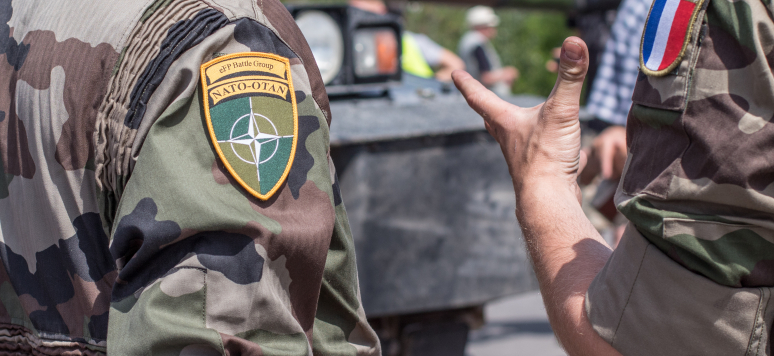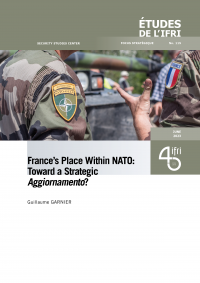
France’s Place Within NATO: Toward a Strategic Aggiornamento? Focus stratégique, No. 115, June 2023
With a rapidly deteriorating security environment, a chaotic withdrawal from Afghanistan, internal disputes exploding into public view, and questions being raised about the scope of its security responsibilities, the North Atlantic Treaty Organization (NATO) seemed to be in dire straits at the time of Russia’s invasion of Ukraine on February 24, 2022.

The new Strategic Concept, agreed at the Madrid Summit in June 2022, is intended to act as a response to this major turning point and represents the culmination of a process of introspection following President Emmanuel Macron’s comment in an interview with The Economist describing the organization as “brain dead”. The Strategic Concept document sees the Alliance updating both its political and strategic goals. The repercussions of this aggiornamento for France’s defense policy and its armed forces tend to be somewhat underestimated by Paris.
Rather than examining the relationship between France and NATO, a subject already widely covered elsewhere, the aim of this study is to dissect the concrete aspects, primarily military but also political, that stem from this systemic shift within NATO and to analyze its potential consequences for the French defense apparatus. How should France handle these changes, and how can it take advantage of them? The central element of the 2022 Strategic Concept is the return of NATO to its primary function: the collective defense of member states on the eastern flank against its traditional rival, Russia, in respect of both conventional and nuclear threats. Without neglecting other aspects of the concept, it is therefore primarily in relation to the future “deterrence and defense (DDA)” posture, which will be denser and more responsive, that France needs to position itself. For the internal balances within NATO will be radically altered, in a European context where, despite significant disparities, defense budgets are on the rise again, and indeed accelerating in the case of Eastern European and Nordic countries. These financial and military contributions determine the level of responsibility, and therefore the political weight, attributed to each Ally.
What role can France play in this context? France has a great many military assets it can bring to bear within NATO: tried-and-tested armed forces, a responsive force structure, expertise in all fields of defense, and a capacity for strategic analysis of issues that extend beyond the Euro-Atlantic area. Its structural weight in the organization is also substantial, often placing it second only to the United States depending on the criteria used. However, France does not always seem to take optimal advantage of these levers of influence. It does not always succeed in building solid internal coalitions and lacks any established club of military affiliates.


